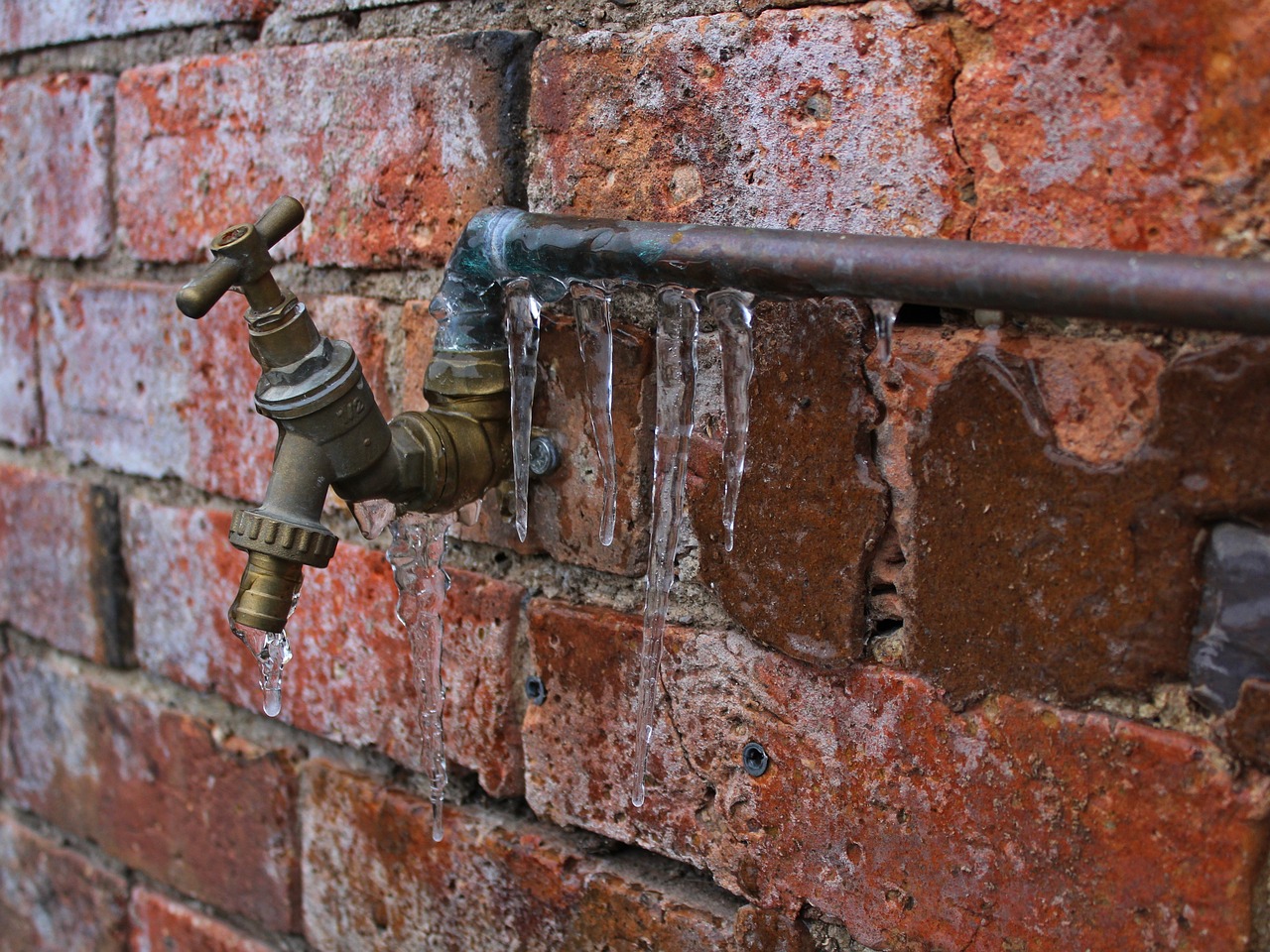Winter in New England is no joke, and whether your house is centuries old or brand new, you may want to think about how prepared you are for frozen pipes. A burst pipe can cause thousands of dollars in damage in just minutes, but in most cases, that worst-case scenario can be avoided with a little advanced preparation! Read on for some of our tips to help you make sure you’re prepared for whatever winter throws at you.
Turn Off Exterior Faucets
It’s probably been a while since you were running your garden hose, but those exterior taps have the least protection, and frozen water can back up into the pipe. Turn off the feet to exterior taps, and then make sure to drain any water sitting in the exterior pipe.
Disconnect and Store Hoses
Having your hose all set to go is handy in warmer weather, but water sitting in the hose can freeze and result in a cracked, leaky hose. Even worse, if there’s enough undrained water in the hose, it can back up into the pipes. Make sure you detach the hose and any timers from the tap, drain them well, and store them out of the snow and rain until the weather warms up again.
Insulate Exposed Pipes
If you have any plumbing along exterior walls, especially in a place like a basement that has less insulation, consider adding insulation to the pipes themselves. You can also consider adding heat cable, which can help regulate temperature on the pipes themselves.
Check For Drafts
It might seem like a no-brainer, but since a lot of our plumbing is tucked away out of sight, you might not realize that it’s right next to an icy draft. For best results, choose a windy day, and check around all your pipes and plumbing cupboards. Even a relatively small draft can do a lot of damage if it’s blowing frozen air directly at a pipe, and blocking drafts can also help you save money on heating costs!
Shop Sink In Your Garage? Consider Adding Insulation
Garages are often uninsulated or minimally insulated, and the garage door won’t do much to protect the space from cold. If your garage has a sink, adding insulation to your garage door can make a huge difference in protecting the interior space from the worst of the cold. If the weather gets downright arctic, consider putting a space heater in the garage.
Open Sink Cabinets
Have you ever noticed that the area under your sink gets cold in the winter? That cabinet door is blocking your heat from getting inside, which can be a risk for the pipes, especially for sinks on an exterior wall. Open up the cabinets to help let some of that heat in. Note: if you have children or animals, make sure that any cleaning products or other toxic materials are safely stowed away in a different cabinet before leaving the door open!
Traveling for the Holidays? Shut Off The Water Supply
If you’re going away for the holidays, consider taking one more thing off your list of worries by turning off the water supply in your absence. That way, if a pipe does freeze and then flood while you’re gone, you can minimize the water damage. Alternatively, ask someone to stay at your house in your absence!
These tips can’t guarantee that your pipes will stay protected in the winter month, but they can help you to ensure that you’ve done everything you can to prepare for the cold. Looking for a professional to give everything a once over? Contact us to schedule a preventative maintenance visit!


